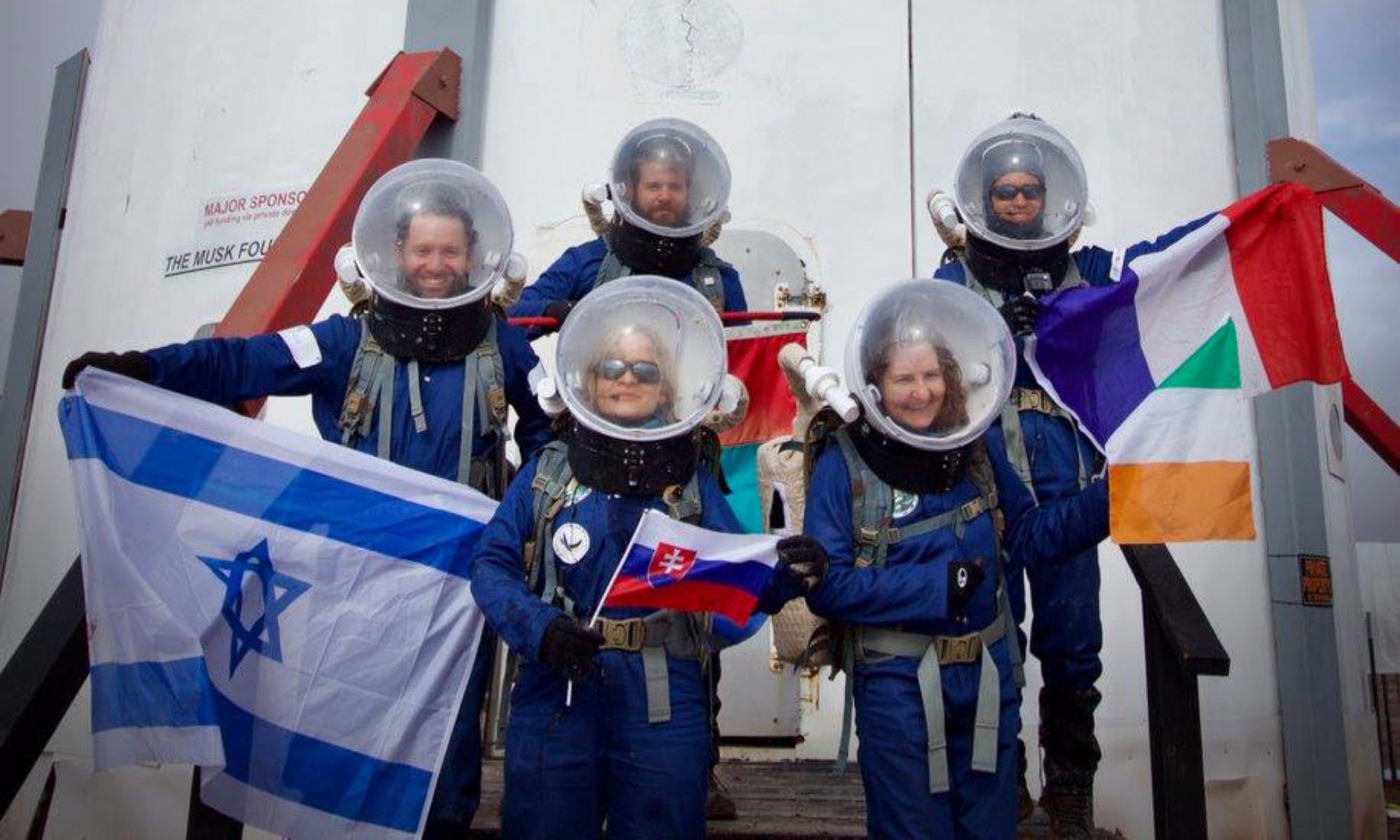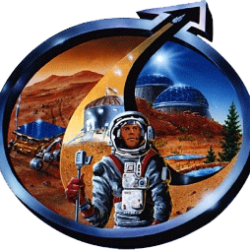Crew 280 Journalist Report 26-04-2023
Author: Núria Jar, Crew Journalist
The crew members of Hypatia I were relieved to enjoy a warmer day on Mars as the temperature climbed above 20 degrees Celsius, following some chilly days at the beginning of their mission.
On average, the temperature on Mars is -63ºC, but the difference between Martian day and night goes from 35ºC during the day and drops significantly at night to -80ºC. The extreme temperature variation can make exploration and survival on Mars challenging. However, Hypatia I crew is surviving efficiently.
The Crew Scientist of Hypatia I, Ariadna Farrés Basiana, demonstrated her resourcefulness by making a homemade sextant using only a few objects to determine the latitude at the Mars Research Desert Station (MDRS). She took a rule, a piece of cord, one rock and a homemade protractor. The crew is looking forward to testing it out during the night to see how accurate the homemade sextant is in determining their location, in relation to the Polar Star.
Mars has an inclination that is very similar to Earth’s. So, the method used by the Crew Scientist to determine the latitude at the MDRS using a homemade sextant should work on Mars just as it does on Earth.
The extravehicular activity (EVA) of the day took place along Cow Dung Road 0110, just before reaching the Martian moons around Outlook. The long distance between this destination and the MDRS made radio communications between the crew and the base challenging. To address this issue, the Crew Commander, Mariona Badenas-Agustí, pointed the radio antenna towards the south to improve communication with the base. Fortunately, it worked and the EVA was a nice experience in the MDRS surroundings.
During the EVA, the GreenHab Officer, Laia Ribas, took the opportunity to collect sand samples from various locations. She is using microBIOMETER, a device that allows her to test the soil microbes on site, to study the possibility of life on Mars. The GreenHab Officer is leading this experiment in collaboration with the school of their kids, so the next generation is getting involved in scientific exploration and discovery. She finally discovered the presence of life on the Red Planet.

